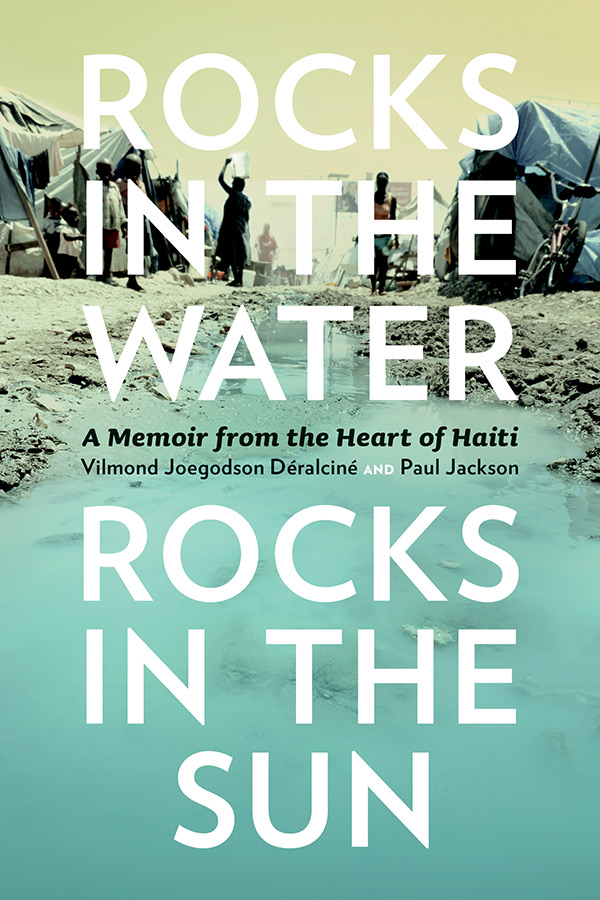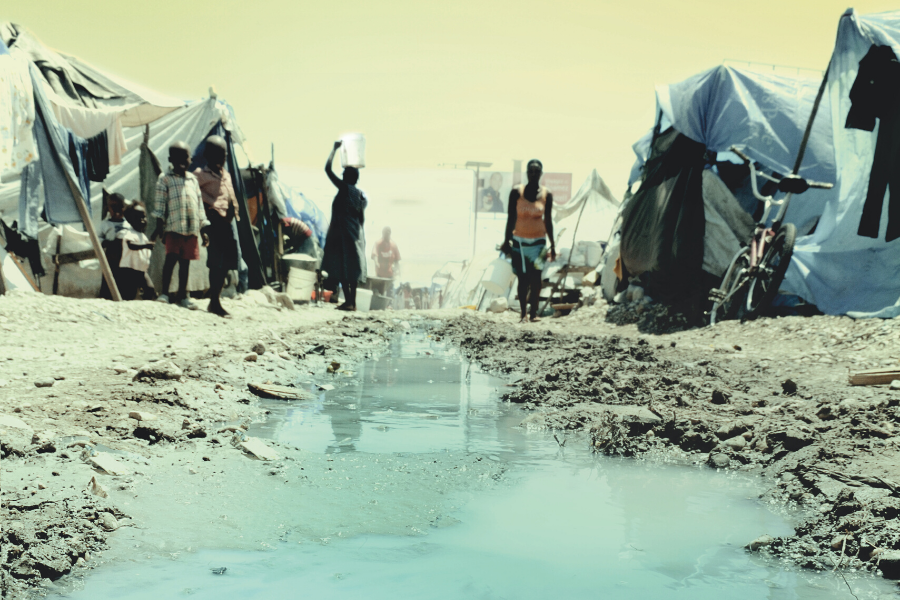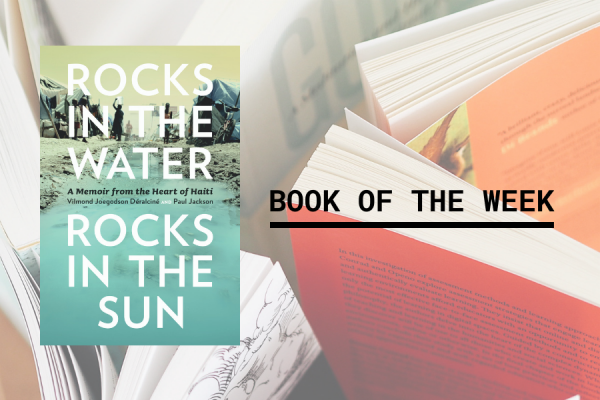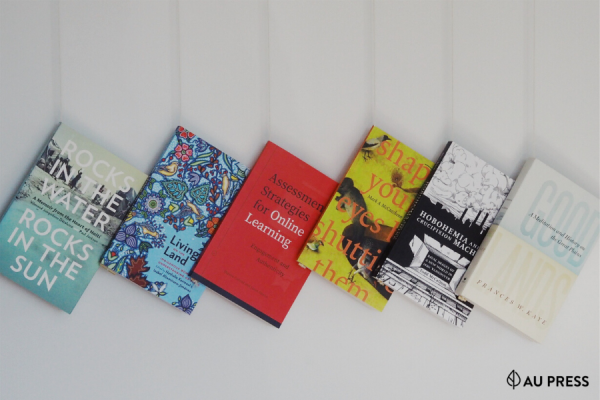This year marks ten years since the devastating earthquake in Haiti on 12 January 2010. This disaster left tens of thousands of people dead or wounded and prompted one of the world’s largest refugee crises. When disaster strikes, we often hear only the stories selected by the media and the voices of those affected are often lost or altered. In Rocks in the Water, Rocks in the Sun, Vilmond Joegodson Déralciné, a furniture maker living in Canaan, Haiti at the time, describes the intimate details of the lives of the poor in Haiti and how he survived. Read on for Joegodson’s account of the moment the earthquake hit.
Download a copy of Rocks in the Water, Rocks in the Sun to learn more about the aftermath of the earthquake.
Tuesday, 12 January 2010, I passed half the day in Delmas 19 in the courtyard where I lived with Jelo. I was thinking about my future and it had drained all the energy out of me. The future was nothing but a word with nothing inside of it.
My church had a Bible study group that met at five o’clock each Tuesday evening. As I had nothing to do at home but mope, I left to arrive an hour ahead of schedule at the house where my girlfriend Annie lived with her elder sister, Mme Bolivar. Together, we would walk to the church that was just a few minutes from her place.
I was playing with the kids of the house. That always lifted my spirits. Then, since there was power that afternoon, I went to watch television until it was time to walk over to the church. Annie was taking care of Lucy, her three-year-old niece. I was lost in a war movie. During a gunfight on the television, I heard a little noise outside like a bulldozer passing. The house was far from the road; it was built into the hill with only little alleyways running through the neighbourhood. I didn’t think further about it because my concentration was taken up by the film. The gunfight on the television intensified at the same time that the house began to shake. I was so into the film that the shaking seemed normal—but in the context of the film, not in real life in Delmas 33. My chair started to shake. Finally, I separated the film from my life. The entire house was rocking from side to side. Even the characters in the film finally joined real life when the television fell to the ground.
I heard Annie cry outside. “Oh Jezi! My head, my head!” As the ceiling came down, a piece of concrete had struck her on the head.
Lucy heard her aunt scream and she imitated her, yelling, “Jezi, Jezi,” and swayed her arms in the air.
Outside, everyone was yelling the same thing, “Jezi! Oh Jezi!” It was as if all the voices in the neighbourhood came together in one thought, one sound.
I did everything I could to get out of the room where the television was now crashed on the floor. I was trying to get to where Annie and Lucy were calling. But I was in the back of the house and the only way out was the hall. I called to them to stay calm. I tried to negotiate the hallway as the house swayed, balancing myself with outstretched arms on the walls on each side.
For a second, the earthquake calmed and I was able to get to Annie and Lucy in the hallway. Annie was crying. Lucy too was crying tears, in every way imitating her aunt Annie.
I told them, “Listen, it’s not over yet. We have to find the other kids and leave the house.”
When we got to the gallery, Annie’s three nephews appeared on the stairway from the roof and joined us to leave the house. We didn’t have time to listen to their stories. The important thing was that everyone in the household was accounted for. We all left together.
Standing on the pathway that led to the road, we were not yet safe. The houses rose on each side. We were still perilously close to them. So we descended the pathway to reach the road. There, we saw all the neighbours who had escaped assembled together. Everyone had come instinctively to this open place. Everyone was white with powder. All that was visible was the black of their eyes. Those who were weak were lost in their tears. Others thought of how they might help those who were trapped.
After a few seconds, the earthquake struck again. We saw houses around us collapse.
Annie, the kids, and I grouped together in the middle of the road, watching the walls sway back and forth with the shakes of the earth. We saw big fissures split the walls. Sometimes they collapsed and sometimes they didn’t.

You can download Rocks in the Water, Rocks in the Sun for free on our website. You can also get 20% off the print book until 31 May 2020 by entering the code CabinFever when you order through our distributor, UBC Press.


